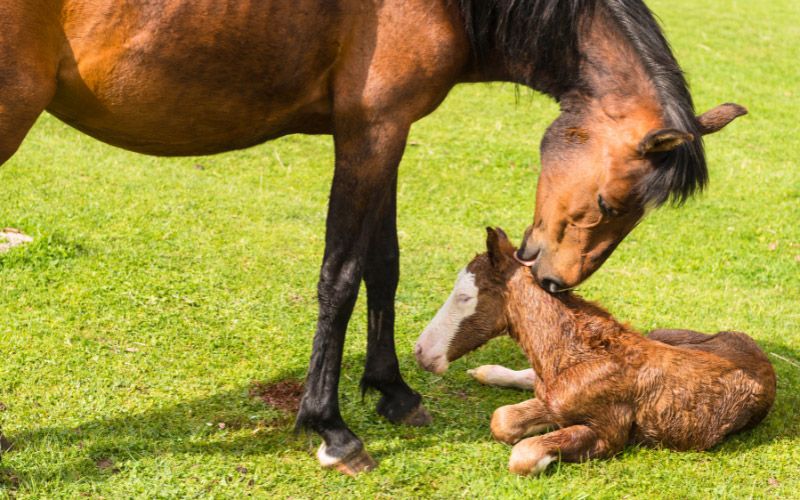
When to Call the Vet: How to Recognize Foaling Problems
Bringing new life into the world is an awe-inspiring moment, especially in the equine world where birth is a testament to the miracle of nature. However, foaling can also be a time of great concern for horse owners, as complications can arise that may endanger the health of the mare and foal. Knowing how to recognize foaling problems is crucial for ensuring safe delivery and the well-being of both mare and foal.
Identifying Normal Foaling
It is important to know what a normal foaling process looks like before looking at any potential issues. A mare will typically display certain behaviors and physical signs to indicate that she is close to giving birth. These signs include restlessness, sweating, pacing, and the appearance of wax-like droplets on the teats. Some mares may even drip milk right before foaling. As the labor progresses, the mare will lie down and actively strain until she delivers the foal.
When to Call the Vet
While most mares give birth without any issues, it is crucial to be adequately prepared for any potential complications that may arise during foaling. If you are uncertain about the situation or if any of the following scenarios occur, please contact us immediately.
Prolonged Labor
If a mare is in active labor for an extended period, it can be a sign of various issues, such as dystocia, malpresentation of the foal, or placental problems. In such cases, veterinary assistance is necessary. If the mare has been actively straining for more than thirty minutes without producing a foal or if there are signs of distress, such as excessive sweating or rolling, immediate attention is required. Prolonged labor can be dangerous for both the mare and the foal and should not be taken lightly.
Abnormal Presentation
It is ideal for foals to be delivered in a front-hoof position, followed by the head and shoulders. If the foal is presented in any other way, such as breach or lateral presentation (sideways), the mare and foal require immediate veterinary care. It is important not to try to correct the issue on your own as this could cause injury to either the mare or the foal.
Retained Placenta
After giving birth, the mare should expel the placenta within 3 hours. If the placenta is not expelled, it can lead to severe complications such as uterine infections, laminitis, or even death. Signs of a retained placenta include a foul-smelling discharge, fever, loss of appetite, and lethargy. It is necessary to seek veterinary treatment to remove the retained placenta and prevent further complications safely.
Postpartum Hemorrhage
Excessive bleeding after giving birth to a foal is a severe and life-threatening emergency that requires immediate veterinary attention. This condition can happen due to uterine tears or failure of the uterus to contract correctly after foaling. Some signs of postpartum hemorrhage are constant bleeding from the vulva, weakness, pale mucous membranes, and rapid heart rate. If you see any of these signs, call your veterinarian right away.
Foal Distress
While most foals are born healthy and alert, some may experience distress during or after birth. Signs of foal distress include:
- Difficulty breathing
- Weak or not nursing within 2 hours
- General abnormal behavior
- Failure to stand within one hour after birth
- Has not had a bowel movement or passed the meconium
Prompt veterinary evaluation is necessary to assess and address any underlying issues affecting the foal’s health.
Full Circle Equine and How to Recognize Foaling Problems
Foaling season is in full swing. Horse owners please be watchful and ready for any foaling complications that may arise. Being aware of when to call the vet during foaling can make all the difference between a successful delivery and a potentially life-threatening situation for the mare and foal. By keeping themselves informed and knowing how to recognize foaling problems, horse owners can help the safety and welfare of their equine companions during this crucial time.
It is always better to be safe than sorry, so in case of any uncertainty, seek veterinary care. The Full Circle Equine team is highly experienced and well-equipped to handle foaling complications. We are your valuable partners in ensuring a successful foaling experience for your mare and her foal.